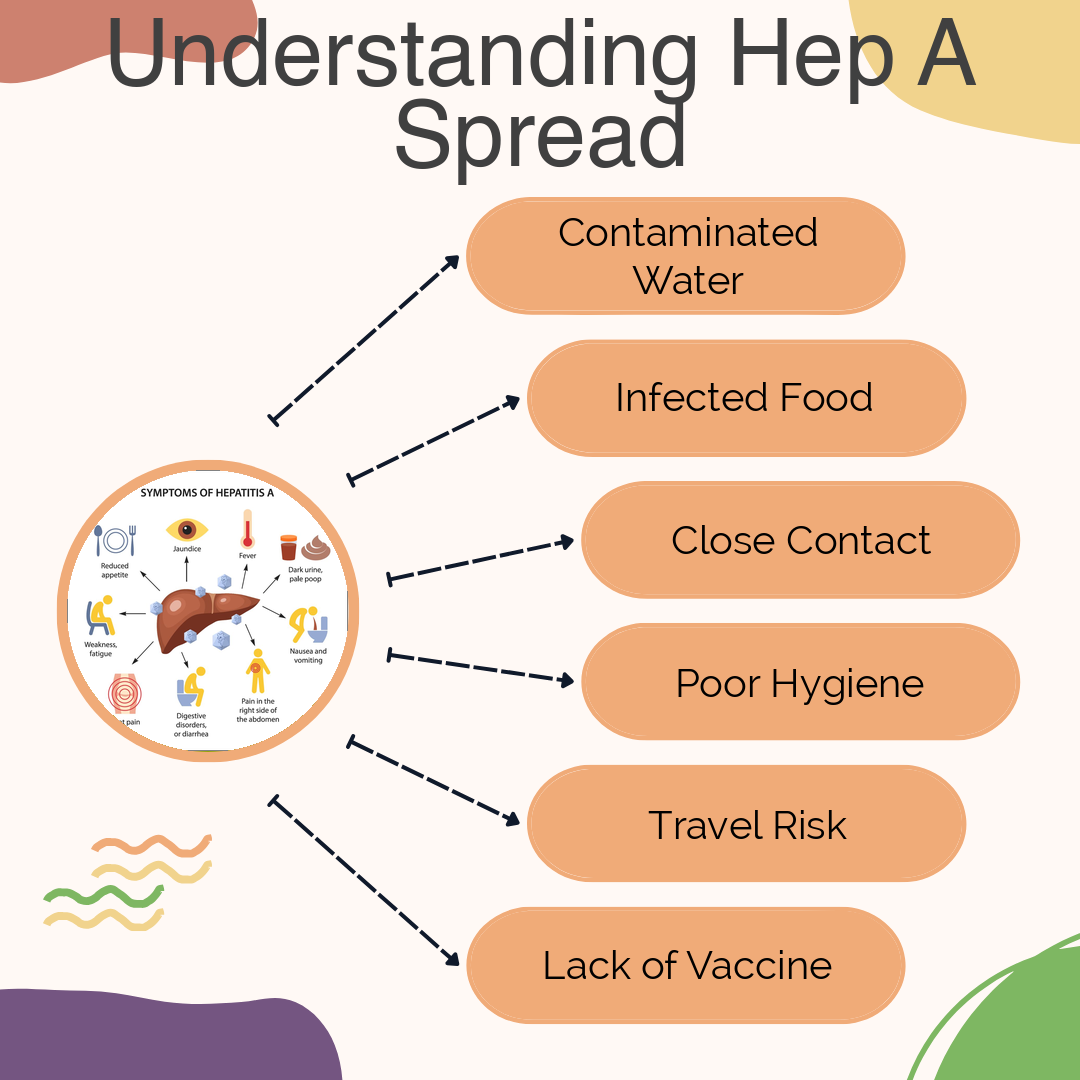The Hep A virus, a form of liver infection, is more common globally than you might think. This illness, caused by the hepatitis A virus, affects many people, making it essential to understand its nature and impact. Public awareness about how the hep a virus spreads, its symptoms, and how to prevent it is crucial. Knowing more can help you and others stay safe.
What is Hepatitis A?
Hepatitis A is a viral infection that targets the liver. Unlike other hepatitis types like B and C, hepatitis A doesn’t lead to chronic liver disease. But it’s still worrisome. Why? Because hepatitis A infection causes discomfort and, in some cases, can lead to further complications. You won’t face long-term liver effects with hepatitis A, but the symptoms can be unpleasant. By understanding what Hep A is, you can take steps to reduce the risk of getting it.
Transmission: How Hepatitis A Spreads
How does the hep a virus find its way into our bodies? Mostly through the fecal-oral transmission route. Simply put, the hepatitis a virus spreads when someone ingests contaminated food or drinks. Hep A virus is found in the stool of an infected person. If you eat food or drink water contaminated with this virus, you could become infected. Even close personal contact can spread the virus. Here are a few risk enhancers:
- Eating foods that were handled by a person with hepatitis A infection.
- Drinking contaminated water.
- Being in areas with poor sanitation or hygiene.
Knowing these risk factors can help you be more vigilant.
Signs and Symptoms of Hepatitis A
The signs of hepatitis A infection can range from mild to severe. You’ll want to know if you develop any suspicious symptoms. Typical symptoms include:
- Yellowing of the skin or eyes, known as jaundice.
- Dark urine and pale stools.
- Abdominal pain or an uncomfortable feeling around your liver.
Kids might not show symptoms as much as adults do. But when they do, it’s often milder. Keep in mind that symptoms might take time to appear after the virus enters your body.
Incubation and Lifecycle of the Hep A Virus
Once you’re exposed to the hep a virus, it takes 14 to 28 days for symptoms to develop. This is the virus’s incubation period. During this time, it quietly sets up camp in your liver and starts replicating. The virus is most infectious before symptoms even begin. You could unknowingly spread hepatitis A to others without realizing it.
Understanding these timings can assist in safeguarding yourself and others. Knowing that you’re most infectious right before symptoms appear helps in controlling the spread.
Diagnosing and Testing for Hepatitis A
To know if you have hepatitis A infection, you’ll need a blood test. Even if you don’t have symptoms, diagnosis is key. Why? Because some folks spread the virus even without feeling sick. Recognizing this scenario emphasizes the importance of testing. It helps prevent unintentional transmission of the hep a virus to others in your community.
Treatment Options for Hepatitis A
For the Hep A virus, there’s no specific antiviral treatment. The primary approach is supportive care. This involves managing symptoms as your body clears the virus on its own. Rest and adequate nutrition are essential. The liver heals in time, but the process demands patience. Knowing what to expect can ease the anxiety accompanying hepatitis A infection.
Who is at Risk of Hepatitis A Infection?
Those not vaccinated face a higher risk of getting hepatitis A. Areas with low vaccination rates are potential hotspots for the hep A virus. Certain lifestyle factors also increase risk:
- Traveling to areas with high incidence rates.
- Engaging in behaviors that expose you to contaminated food or water.
Recognizing these risks allows you to take preventive actions.
Effective Prevention of Hepatitis A
Vaccination is crucial in fighting the hep a virus. It’s recommended for anyone at risk of exposure. Alongside vaccines:
- Practice handwashing as a hygiene staple.
- Handle food safely and ensure it’s cooked properly.
Travelers to areas where hepatitis A is common should be extra cautious. Engaging in these actions reduces your chances of encountering the hepatitis a virus.
Steps to Take if Exposed to Hepatitis A
Worried about exposure? Don’t panic. Start with these steps:
- Get medical advice promptly and discuss possible exposure.
- Have relevant tests conducted to check for hepatitis A infection.
People around you can be at risk. Taking preventive measures early can stop further spread.
Conclusion
Summing it up, the hep A virus is more than a simple inconvenience. Prevention plays a vital role, and the best defenses include vaccination and maintaining hygiene. Stay informed to protect yourself and your loved ones from the hepatitis A virus. Learning more about this infection can inspire more proactive health behaviors and ensure safety in the future. Encourage friends and family to remain educated and ask about getting vaccinated. By doing so, we can contribute to a healthier world free from the discomfort of hepatitis A.
